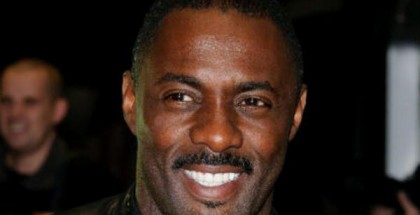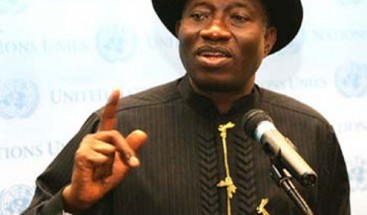Africa’s Next Billion (World Economic Forum 2014)
konknaijaboy | On 05, May 2014
Source: World Economic Forum
Africa needs to create an enabling environment for domestic and foreign investment to realize its potential and ensure sustainable and inclusive growth for its population, panellists agreed at a session on Africa’s Next Billion, held on the opening day of the 44th World Economic Forum Annual Meeting. However, there are many challenges to overcome, including addressing the pervasive and growing inequality that is fuelling instability.
With the continent’s population expected to rise to 2 billion by 2050, the foundation for sustainable and inclusive growth must be laid now. “We need jobs, jobs, jobs,” said John Dramani Mahama, President of Ghana. “Economic and social inclusion is a top priority. We create space for the private sector and it’s one of government’s responsibilities to distribute the fruits of growth.” To build on the progress Africa has made so far, governments must continue to realize the democratic dividend of good governance, respect for human rights and rule of law, he added.
Goodluck Ebele Jonathan, President of Nigeria, pointed out that there is stability in most African countries today. “But before we could talk about economic growth, we needed political stability,” he said. Another key to unlocking Africa’s huge potential is security, Jonathan added. When addressing the issue of corruption in the extractive industries, in particular oil in Nigeria, the president told participants, “The simple answer to everything is corruption. Not everything is about corruption.”
Aliko Dangote, President and Chief Executive Officer, Dangote Group, Nigeria, and a Co-Chair of the Annual Meeting 2104, pointed out that the majority of foreign investors are too cautious in the lead-up to elections and during what could be the short-lived reign of political parties. “Today there is no government that will be against business, so go ahead and invest,” he urged.
Dangote added: “People always underestimate what Africa can be. By 2050 will have a united Africa with one common market… Can you imagine if we had sufficient power? Our GDP would be US$ 9 trillion by 2050. It can happen.”
Julian Roberts, Group Chief Executive, Old Mutual, United Kingdom, told participants: “Africa is on the move and it is moving forward. But we need to ensure we have an enabling platform for business.” Roberts said the continent will not succeed unless there is a “handshake between government and the private sector”.
Africa’s economic growth may be accelerating, but according to Winnie Byanyima, Executive Director, Oxfam International, United Kingdom: “The concentration of wealth and power is excluding and locking out millions of people, which is driving insecurity and instability.” So far, economic growth has been a race to the bottom, she said. “We need a race to the top so we have policies and regulation to protect human rights, the environment and reduce poverty.”
Doreen E. Noni, Creative Director, Eskado Bird, Tanzania, noted that young people in Africa are not trained from a young age to have entrepreneurial skills. Because of its huge young population, Africa’s workforce is set to burgeon by 2050. “We need to awaken our youth… and direct them to be entrepreneurial. We can only get our continent to have inclusive growth if we are educated and change our mindsets.”
More intra-Africa trade could boost economic growth, but today, it is negligible. “I feel ashamed that trade between our countries is only 11%. That is unacceptable,” said President Mahama. If the continent’s infrastructure bottlenecks can be overcome, particularly intra-African transportation routes, intra-Africa trade could flourish and create prosperity. “Our target should be 80% intra-Africa trade by 2050,” Roberts added.
The Annual Meeting 2014 is taking place from 22 to 25 January under the theme, The Reshaping of the World: Consequences for Society, Politics and Business. Participating this year are over 2,500 leaders from nearly 100 countries, including 300 public figures, 1,500 business leaders and representatives from civil society, academia, the media and arts.
Nigeria Safe For World Economic Forum – Jonathan
As Nigeria hosts the World Economic Forum (WEF), Friday Atufe, writes that the country should endeavour to implement the conclusions reached so that it would not be another talk shop devoid of action.
Nigeria will this week play host to the 24th World Economic Forum (WEF) in Abuja, the Federal capital Territory (FCT) from May 7-9.
This is coming on the heels of the 23rd edition w held in Cape Town, South Africa, from May 8-10, 2013.
The theme of last year’s edition, “Delivering on Africa’s Promise,” provided an important platform for regional and global leaders from business, government and civil society to deepen the continent’s integration agenda and renew commitment to a sustainable path of growth and development by addressing the following themes: accelerating economic diversification, boosting strategic infrastructure and unlocking Africa’s talent.
The choice of Nigeria for the summit is not farfetched – Africa’s remarkable growth trajectory is projected to remain above five per cent in 2014 with West Africa as the fastest growing sub-region. Of this, Nigeria is the hub representing the continent’s largest business opportunity. Such momentum is a welcome and necessary boon to a region whose youthful population offers the prospects a significant demographic dividend fuelled by growth in consumer industries, manufacturing and business process outsourcing.
Nigeria is also sub-Saharan Africa’s largest economy with the recent rebasing of its gross domestic product (GDP) and the most populous nation – with more than 170 million inhabitants. The country already plays a crucial role in advancing the continent’s growth; yet it is also faced with the challenges of converting natural wealth into solutions that address persistent social challenges.
As the foremost gathering on the continent, the 24th WEF in Africa will bring together regional and global leaders to discuss innovative structural reforms and investments that can sustain the continent’s growth while creating jobs and prosperity for all its citizens.
Already, President Goodluck Joanthan has assured the international community and all participants in the forum that the host city, Abuja, is safe for the meeting. The President, speaking when he received in audience the new Chinese ambassador to Nigeria, Mr Gu Xiaojie, who presented his letter of credence to him at the Presidential Villa recently, assured that the security challenges being faced in parts of the country would have no adverse effect on the safety of participants in the forum.
The president welcomed the confirmation by China that its delegation to the forum would be led by its premier, Mr Li Keqiang.
He said, “I am quite pleased that the premier of the People’s Republic of China has confirmed that he is coming. We would be addressing the World Economic Forum on Africa together. We would also sit down together to discuss shared national interests.
“We will give all participants a good reception in Abuja. We have faced challenges in the area of security but we will overcome the situation so that our economy can move forward faster. Participants will not have problem with security during the summit,” Jonathan said.
In the same vein, the head of secretariat, World Economic Forum, Africa, Mr Frank Nweke, has assured the international community of adequate security during the forum.
Nweke, who doubles as the director-general of Nigerian Economic Summit Group (NESG), said the committee in charge of the forum had been working in the last 14 to 15 months and had made proper arrangement for logistics to ensure that participants would not experience any hitch.
He said, “The venue, logistics, transportation and volunteers preparations are on high gear, but security is very important to Nigerians as a whole. Once we are safe as Nigerians, our guests will be safe too.”
For Mr Tony Elumelu, founder, Tony Elumelu Foundation, who believes that “no one can develop Africa but us,” Africa’s private sector must be the leading player in contributing to the continent’s economic transformation.
Elumelu who addressed a group of philanthropy, business and development leaders in Washington DC recently, observed, “We are now the world’s fastest growing region. There is a social and economic impact to be derived but it needs to be done with the right approach – with African leadership and with the private sector, rather than from a charitable orientation.”
The former group chief executive officer (CEO) of United Bank for Africa (UBA) Plc, said, “Investment in Africa needs a different perspective,” adding that for Africa’s economic growth to continue on sustainable basis, the private sector needs to take the lead, invest long term, and focus on making both economic and social gains.
The forum is an international institution committed to improving the state of the world through public-private cooperation.
The World Economic Forum was founded in January 1971 when a group of European business leaders met under the patronage of the European Commission and European industrial associations. German-born Klaus Schwab, then Professor of Business Policy at the University of Geneva, chaired the gathering, which took place in Davos, Switzerland.
Professor Schwab’s inspiration for creating the Foundation was his book –Moderne Unternehmensführung im Maschinenbau – in which the stakeholder principle was first defined. This concept states that the management of an enterprise is not only accountable to its shareholders but must also serve the interests of all stakeholders, including employees, customers, suppliers and, more broadly, government, civil society and any others who may be affected or concerned by its operations.
The forum was called the European Management Forum until 1987, when it was renamed the World Economic Forum to reflect its expanding scope and transformation from a European to truly global organization.
Conclusion
We enjoin the private sector to implement the issues that will be addressed and reached at the forum seriously in the overall interest of the country so that it would not be another talk shop that is devoid of promise.















